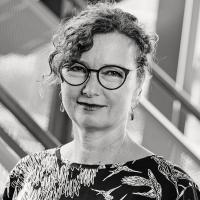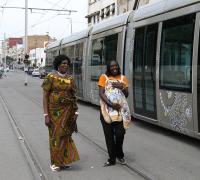Research project: Deportation and emergency return to Ghana from Europe and Libya
Nauja Kleist, DIIS, Danish Institute for International Studies
This research project examines forced return among Ghanaian migrants from Europa and Libya, analysing the social consequences for involuntary return migrants, their families and local communities. It specifically focuses on the local and political responses to forced returnees and deportees as well as their livelihood strategies, mobility practices, and notions of hope, risk, success and failure.
In the last decade, Ghanaian migration has received increased political attention with particular focus on migration management, risk-awareness campaigns and the combat against irregular migration. In the same period, Ghanaian migration has become diversified, and for those without access to legal means of mobility, more difficult to realize. Today, many aspiring Ghanaian migrants find themselves in situations of entrapment without any prospects of social or geographical mobility and without the possibility of living up to family obligations. Likewise, some migrants have been deported or forced to return from the uprisings in Libya.
To explore the consequences of such interrupted migration projects, the study will explore the interplay between migration management and mobility regimes on the one hand, and local responses and perceptions of forced return, deportation and entrapment on the other.
Research questions:
In the last decade, Ghanaian migration has received increased political attention with particular focus on migration management, risk-awareness campaigns and the combat against irregular migration. In the same period, Ghanaian migration has become diversified, and for those without access to legal means of mobility, more difficult to realize. Today, many aspiring Ghanaian migrants find themselves in situations of entrapment without any prospects of social or geographical mobility and without the possibility of living up to family obligations. Likewise, some migrants have been deported or forced to return from the uprisings in Libya.
To explore the consequences of such interrupted migration projects, the study will explore the interplay between migration management and mobility regimes on the one hand, and local responses and perceptions of forced return, deportation and entrapment on the other.
Research questions:
- How do Ghanaian involuntary returnees, deportees and aspiring migrants perceive hope and risk in relation to cross-Saharan migration, return and entrapment?
- Which gendered family obligations and expectations are they embedded in, and how do they respond to them?
- How are deportation, forced return and entrapment understood and experienced by the migrants involved, family members and the wider local community in Ghana?
Fieldwork will consist of observation and interviews with aspiring migrants, deportees and involuntary returnees and their families, CSO activists, local and traditional authorities, community leaders, and policy makers. The field studies took place in February 2012 and again from November 2012 – April 2013.
DIIS Experts

Photo/illustration by Lynggaardhansenfoto.dk

